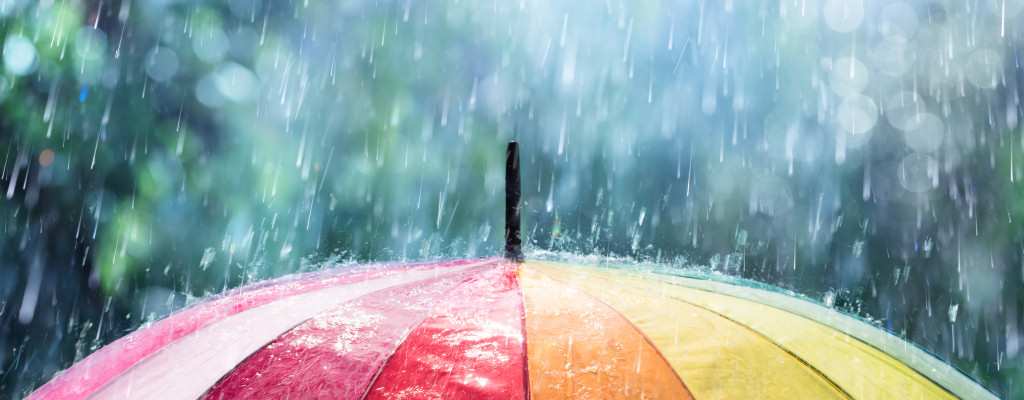With periodic hail, flooding, tornadoes, and other inclement weather types, Ohio homeowners can find it challenging to keep their living spaces safe and comfortable. Most of us rely on our HVAC systems to keep us cozy indoors as spring’s wind and rain bring inconsistent temperatures and keep us fiddling with the thermostat.
Your family might be safe inside, your air conditioning system’s condenser unit outside may not be. Hail wreaks havoc on your roof, windows, and that SUV sitting in your driveway. Your AC condenser is also at risk of being damaged as well. How can you protect your outdoor AC unit in bad weather? Here are five tips to keep your AC working through the harshest of storms.
Cover your condenser
The two biggest enemies of condensers are hail and flying debris. If heavy winds or hail are in the forecast, place a thick cover on your outdoor unit. This provides protection during the storm and allows you to rest easy, knowing that your AC is shielded from impacts.
If hail is common where you live, you might consider adding hail guards over the most vulnerable areas of your unit.
If you do use a cover, don’t forget to turn off your system until the storm has passed and wait until after you’ve removed the cover once again to turn your AC back on.
Don’t use your AC during a storm
When a thunderstorm threatens, it’s wise to turn your air conditioning system off until the storm passes. Power surges caused by nearby lightning strikes might cause damage to your HVAC system’s electronic components. You might even consider unplugging your unit to add an extra measure of damage prevention. Taking this extra precaution will also prevent any excess electrical current from entering your home if your unit gets hit by a surge.
In the case of a power outage, leave your system unplugged until power is restored. The sudden initial surge has the potential to cause considerable damage.
Elevate your AC
Along with spring’s thunderstorms comes the danger of flooding. Placing your AC condenser in an elevated area reduces the likelihood of water damage. Consult your area’s floodplain maps to learn where floodwaters are likely to rise around your home.
Have one of our HVAC experts out for a visit to discuss raising your AC unit above the flood line if you feel this might be an issue for your property.
Keep your property clean
Debris and branches can be blown into your AC unit and cause considerable damage. Ensure that any nearby trees and bushes are neatly trimmed, and that dead branches are removed to prevent costly repairs.
Lawn furniture can also pose a problem to both your AC and your house itself. Consider storing all objects inside that could be blown around or secure them to the ground before a storm arrives to avoid any problems.
Inspect your AC before turning it back on
Once a storm passes, you’ll be tempted to use your AC right away. Don’t do this. Instead, head outside to look over your unit and ensure that it’s sustained no damage.
While you’re at it, look around for any debris that has fallen nearby. Branches, leaves, and other potentially problematic items could have been blown onto – or into – your system and should be cleared away before using your air conditioning again.
Power lines could also be down near your unit. If you see a downed line, you should notify the electric company immediately. Absolutely do not approach the area until the line has been removed by a professional.
We can protect your investment
Was your AC unit damaged during a recent storm? Are you considering upgrading to a new AC unit? Hey Neighbor Heating & Cooling has been helping homeowners with their HVAC systems for decades. Our expert, trained technicians can help with your air conditioner problem, conduct manufacturer-recommended maintenance and even install a new air conditioning system. Whatever the weather, Hey Neighbor can keep your family safe, comfortable and help protect your HVAC investment. That’s how neighbors should treat neighbors!™


Comments are closed